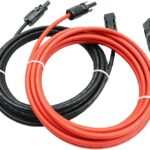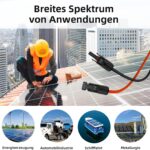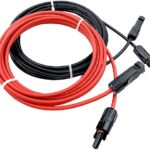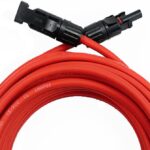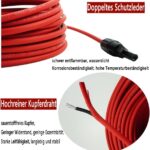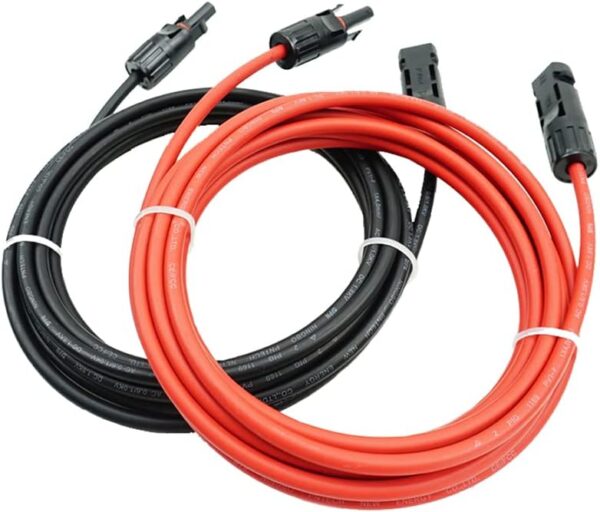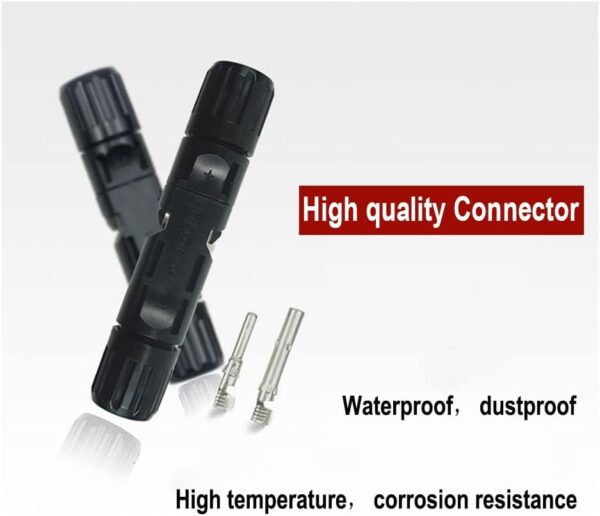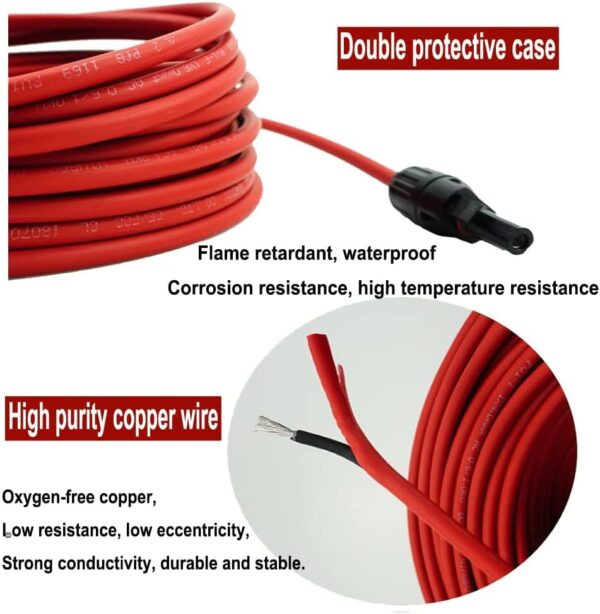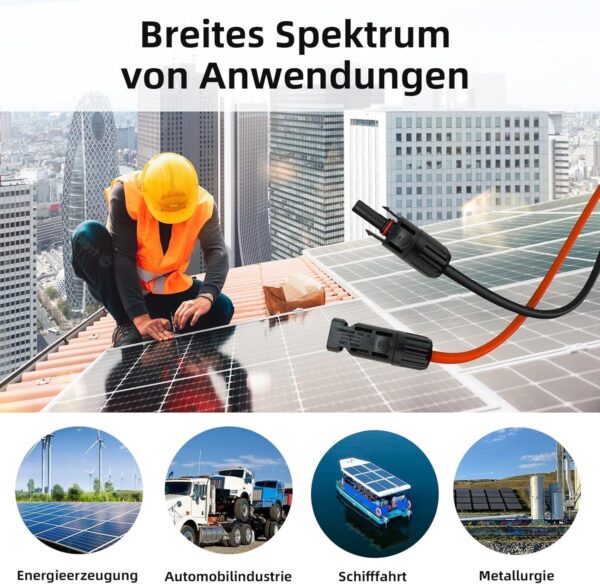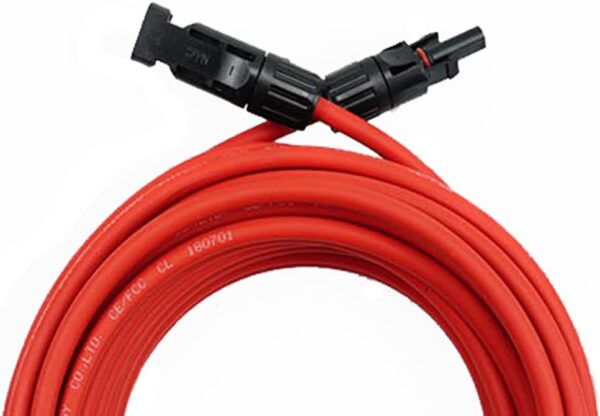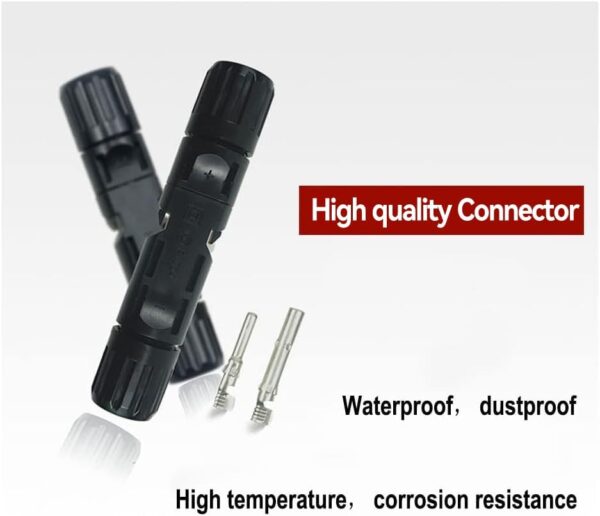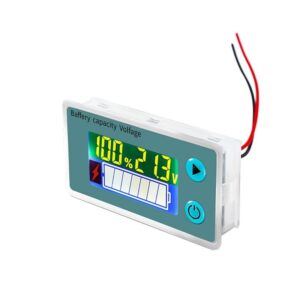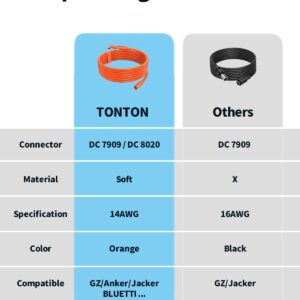Description
Colour: Red
Connector gender: Male-to-Female
Voltage: 1500 Volts
Input current: 3E+1 Amps
High quality: Conductors made of tinned copper, connectors made of PPO, and cables made of XLPE for stable transmission. Outer wrap insulation has excellent aging and ultraviolet resistance, high temperature resistance, wear resistance, and corrosion resistance.
Good compatibility: Compatible with photovoltaic cables with different insulation diameters 2.5mm²-6mm².
Easy installation and removal: Connector can be installed and removed quickly and easily without any extra equipment, providing convenience.
Excellent water resistance: Waterproof and dustproof, with waterproof IP67, suitable for use in harsh environments.
Professional use: Specifically developed for connecting photovoltaic systems with high mechanical requirements and extreme weather conditions.

